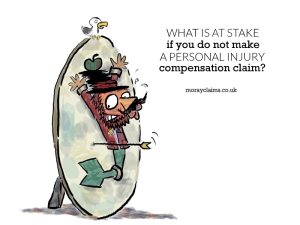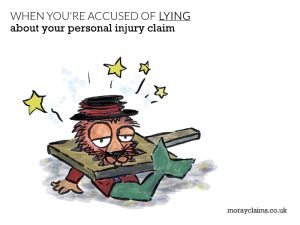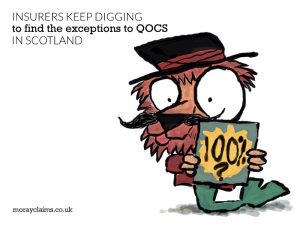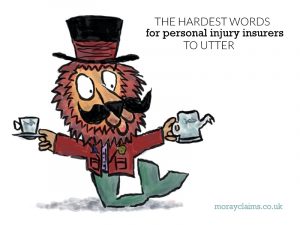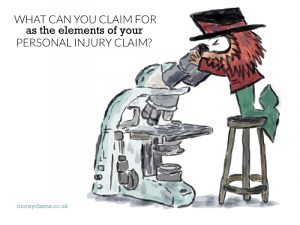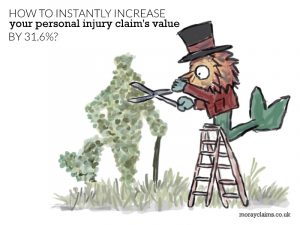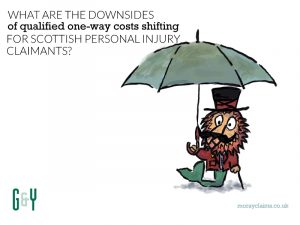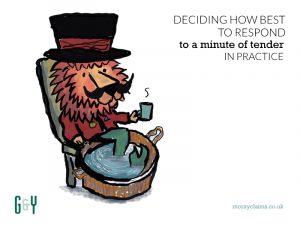Rugby League and Rugby Union have common origins. There are many similarities between the two codes. Both kinds of rugby use an oval ball and play on a rectangular pitch with H-shaped goals. Each plays two halves of 40 minutes. Passes must always go backwards. Tackling is a crucial element in each. But there are significant differences as well. There are 15 players in a Rugby Union team and 13 players in a Rugby League team. There are no lineouts in Rugby League. If a ruck or maul develops in Rugby Union there is a material chance that possession will change hands whereas in Rugby League possession is generally retained by the team which previously had possession – up to the point of the ‘sixth tackle’ when possession will automatically change hands according to the rules of Rugby League. There are some who say that Rugby Union is played at a slower pace - with more stoppages - whereas Rugby League maintains a generally higher pace of play, with higher ball-in-play Continue Reading
Avoiding Losing Money on Your Personal Injury Claim
Below you will find a series of articles on the Moray Claims website on the subject of “Avoiding losing money on your personal injury claim”.
There are lots of things you can do to help yourself, for example:
- maximise the value of your claim by keeping good records of outlays you incur in connection with medical treatment, travel expenses, medication and the like, so these can be fully reclaimed;
- don’t make up elements of your claim and avoid exaggeration;
- avoid hidden costs such as your solicitor or other representative levying charges against you on successful conclusion of your claim which mean the amount you actually receive is reduced when it maybe does not need to be.
When an insurer refuses to pay all your solicitor’s outlays in a personal injury claim
Personal injury claims in Scotland are set up in such a way that, if liability for the accident and injuries is admitted, in most cases it will then be possible to go on to negotiate a settlement of the claim without the need for court action. The rules of the Scottish Compulsory Pre-action Protocol provide a way to calculate the fee which will be due to the solicitor based on the amount of compensation that is agreed. The rules also provide that the insurer will meet "all reasonable outlays". The sorts of “outlays” that are envisaged include: the cost of medical reports; police accident reports; and professional photographs taken to show the extent of any residual scarring stop In most cases, calculation of the fee and recovery of the outlays related to an agreed amount of compensation is a formality. But sometimes an insurer will object to a particular outlay for some reason and in this article we will discuss an experience we had recently where insurers offered only a Continue Reading
What is at stake if you do not make a personal injury compensation claim?
What do you stand to lose if you do not make a claim for personal injury compensation in a situation where that would be a realistic option for you? In this article, we will consider 3 ways you can lose out if you don't make a personal injury claim. The general principles here may be obvious but probably not all of the details will be known to you already. Knowing these things is an important part of your "informed consent" - i.e. having all the relevant points to hand before making your decision: to claim or not to claim. Firstly, we will look at your “loss” due to your failure to give yourself the benefit of monetary compensation. In fact, that loss does not just apply to you; it can apply to others who would have to rely on you making a claim in order for them to be compensated as well. Secondly, we will discuss the fact that you only have the choice to make a personal injury compensation claim for a limited period of time. The right does not last forever. Once the right Continue Reading
When you are accused of lying about your personal injury claim
Traditionally, age brings with it wisdom – and the respect of others. But what if you’re 84 years old and you’re accused of telling lies "in court"? It's one thing to exaggerate, for example, medical symptoms caused by an accident - but to invent them? Here's an anonymised true story of a case we dealt with and how a scenario of that nature played out in practice. Our client was injured after she fell into an excavation that had been made by a national utilities company. It was right outside her garden gate. There were no warning signs in place. Our client had a registered sight impairment. She opened her gate, minding her own business, took one step and suddenly down she went. After her accident, the utilities company covered the trench with hard plastic matting so it was impossible for pedestrians to fall in. If they had done that before the accident, it could not have happened. We alleged that the utilities company had been negligent and that had caused our Continue Reading
Digging for QOCS Exceptions in Scottish Personal Injury Claims
The default position under Qualified One-way Costs Shifting (QOCS) for personal injury compensation claimants in Scotland is this. If your claim succeeds, you will be able to recover legal costs from your opponent, in addition to the compensation agreed as payable or as awarded to you by a court. Whether you lose any of your compensation to pay a success fee will depend upon the arrangement you have with your solicitor. If your claim is unsuccessful, QOCS should mean that you DO NOT have pay legal costs to your opponent - even though the normal rule is “loser pays”. That is what “one-way costs shifting” means. There’s a shift in the usual costs rule in favour of the loser if they are claimant; but not if they are the claimant’s opponents (usually an insurance company). QOCS arrived in England and Wales (2013) before it came to Scotland (2021). To some extent, Scotland has been learning from the experience south of the Border. In 2023, there have been some Continue Reading
Why these are the 3 hardest words for personal injury insurers to utter
If you like words and plays on words, the internet is a mine of nuggets. For example, in India, “Sari” always seems to be the hardest word. If you’re looking for “alternative” definitions of words, the Uxbridge English Dictionary (from BBC Radio 4’s I’m Sorry I Haven’t A Clue) has examples such as: Words are not always what they seem. The “plain meaning” of a word is rarely a given. The meaning of words can be twisted or ignored. In this article, we’ll consider 3 words / phrases which insurers in personal injury claim situations will avoid using if they can and will twist as far as possible if they cannot be avoided. What are these "unforgivable" words / phrases? We’ll get to them in a moment. First, we need to understand the context in which the problematic terminology arises. Your personal injury solicitor wants to achieve for you the highest level of compensation reasonably possible, as soon as reasonably possible. There are various tactics your solicitor Continue Reading
Whiplash Claim in Scotland? Make sure you apply the right rules
In Scotland, we are used to being lumped in with England and other parts of the UK in all sorts of situations where that may be misleading or even wrong. Sometimes the law is the same in Scotland as in the rest of the UK and sometimes it’s not. Personal injury claims are usually based upon negligence of one person causing injury to another. The modern law of negligence for the UK (and much of the world) is based on the Scottish “snail in the ginger beer bottle” case of Donoghue –v- Stevenson. But some areas of personal injury law differ markedly between the jurisdictions. For example, the law relating to claims in cases of fatal accidents and payment of bereavement damages to relatives of deceased persons. Scotland has had a more ‘generous’ compensation scheme in this type of case than the rest of the UK for a long time. But one area where there has been a parting of the ways between Scotland, on the one hand, and England and Wales, on the other, has come as recently as May Continue Reading
What all can you claim for with a personal injury claim?
The style of lettering you use for words can have life and death consequences. Research by the AgeLab at Massachussetts Institute of Technology (MIT) has noted how car dashboard interfaces, if designed correctly, should minimise the amount of time the driver has to spend looking at them. The longer you take to work out what's on the screen, the less time you're looking at the road. Some typefaces are rigid and uniform. Their letters and numbers can look highly similar to each other. But other typefaces have much more open spacing and varied letter shapes. These latter fonts can shave precious milliseconds off the time drivers spend looking away from the road. Getting this form of visual communication right is important because the consequences for vehicle travellers' safety could be serious. With personal injury claims, one thing you need to get right in order to avoid potentially serious consequences is the valuation of the claim. With personal injury claims, your Continue Reading
How to instantly increase the value of your personal injury claim by 25%?
The comic strip featuring Calvin and Hobbes has many recurring themes. For example, the opinion poll results showing that Calvin's Dad risks failing to be "re-elected" as Calvin's Dad in upcoming elections (elections which never seem to materialise). Calvin: (e.g.) "You rate especially low among tigers and six-year-old white males." Calvin's Dad: (e.g.) "I take comfort in the fact that not many people would want the job (i.e. the job of being "Calvin's Dad")." Another recurring theme is Calvin's fear of maths problems. It does not help that Hobbes (his pet, stuffed tiger) helps him in class and with homework. For example, Calvin: "What's 7 + 3?" Hobbes: "73." In one class quiz, Calvin considers the following problem: "Jack and Joe leave their homes at the same time and drive toward each other. Jack drives at 60 mph, while Joe drives at 30 mph. They pass each other in 10 minutes. How far apart were Jack and Joe when they started?" Calvin stares helplessly at the Continue Reading
What are the downsides of QOCS for Scottish personal injury claimants?
We've talked about Qualified One-Way Costs Shifting (QOCS) before now because it is an important topic. In Scotland, the "normal rule" whereby an unsuccessful claimant for personal injury compensation will no longer have to pay court costs / expenses if the claim fails will have various exceptions. In these situations, the claimant will lose QOCS protection and have to pay the costs of their opponent. The claimant will only be liable for their opponent's expenses in Scotland where they have: We have waited three years for the QOCS regulations to come in. They were enacted from 30 June 2021. In many respects, the regulations mirror those already in force in England and Wales. The basic principle is the same and the exceptions are largely the same. Abuse of process, behaving manifestly unreasonably and also acting fraudulently or making a fraudulent misrepresentation. One big difference is that Scotland has not enacted any equivalent concept to England and Continue Reading
Help From The Other Driver’s Insurer (How To Avoid Being Misled)
An "innocent third party car claim" is how some motor insurers describe what you have if one of their customers has crashed into your vehicle and it’s not your fault. In other words, the motor insurers in question are the third-party insurers, not your own motor insurers. Their customer was to blame for the accident. The third-party insurers’ offer to you is that you should let them take care of you and your vehicle in sorting things out. This help from the other driver's insurer can include: the repair of your vehicle (or a payment to represent its value if it has been written off), use of a hire vehicle, free of charge, while your own vehicle is being repaired; and help if you have been injured – to include treatment/rehabilitation and compensation. But couldn't you deal through your own insurers? If you have comprehensive motor insurance, one of your options is to deal with a claim for damage to your car through your own motor insurers. This can be an involved process. You may Continue Reading
Deciding how best to respond to a Minute of Tender in practice
Tea drinking is a national pastime in Nepal. They have all sorts of teas - sweet, butter, hot, cold, black, white. The ritual with tea is that, when offered tea, you decline it and your host insists that you have some. No matter how much you say no, they still insist that you have it. So you drink it. In other words, it's a situation with drink consumption where "no" means "yes". With personal injury court actions, as the claimant, if your opponent offers you settlement via a Minute of Tender, you want to say "no" (because you always want them to make you a better offer). Unfortunately, you might find that however much you say "no", depending on the level of offer, your legal adviser may have to insist that you say "yes" and accept it. It's one of the situations that can happen with Minutes of Tender. You think your personal injury claim’s worth £20,000 but you’ve got a formal offer (Minute of Tender) in your court action to settle at £10,000. Should you accept the Continue Reading

